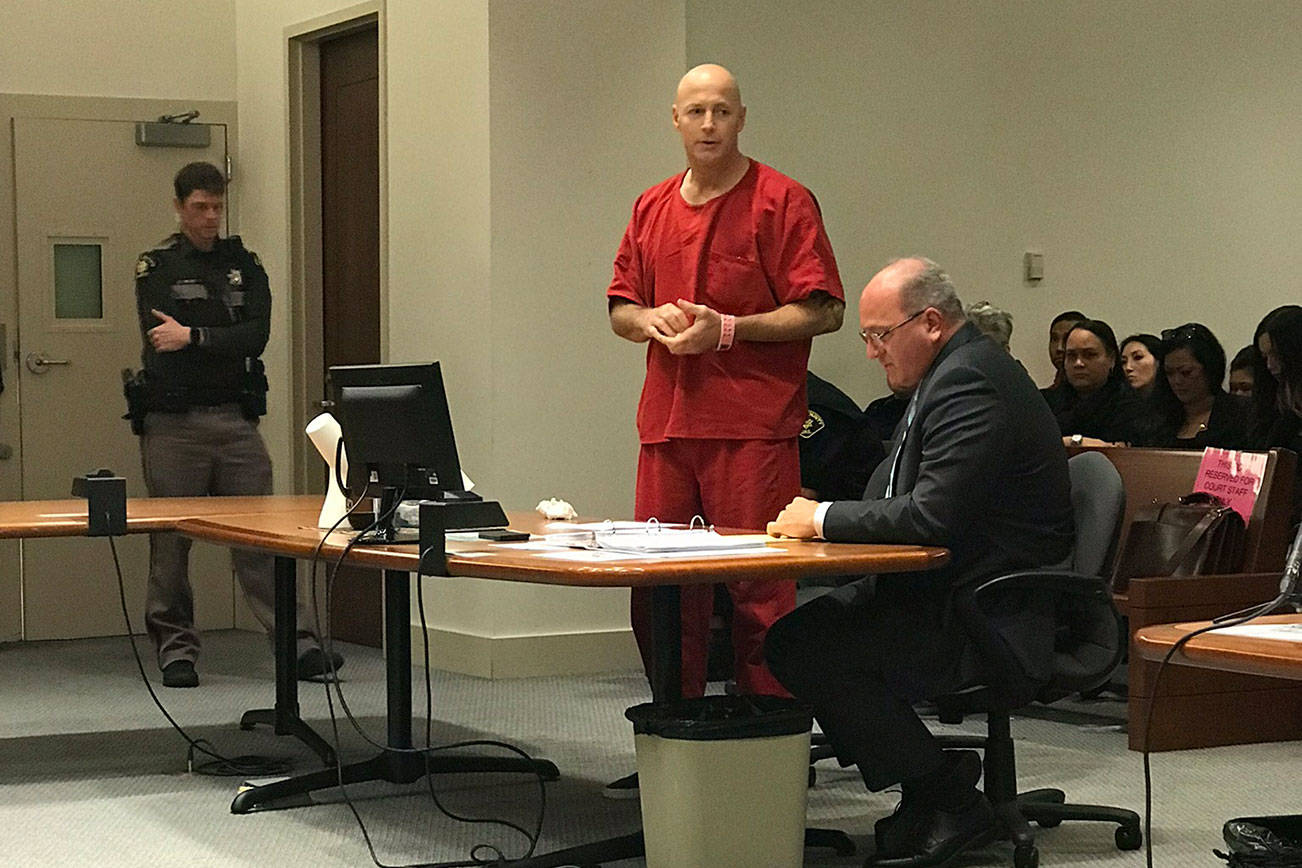• The Kent Police Department will start utilizing 10 body cameras and two in-vehicle cameras this October as part of a pilot program to assess whether the entire 150-member police force should be equipped with the technology.
The initiative was first proposed by Kent Mayor Dana Ralph during her 2017 campaign, and has been endorsed by the local police chief. “It’s an opportunity to improve officer safety and help with accountability of incidents, including use of force,” Chief Rafael Padilla said at a City Council Public Safety meeting earlier this summer.
Arizona-based Axon will provide the cameras and equipment to Kent for free during the pilot program, which is expected to run three to six months. The company also contracts with 38 other police forces in major cities to provide body cameras.
Padilla told the Kent City Council that the department is working with the Kent police officers union, Axon, the mayor, council, and internal legal staff to develop best practices and policies for not only utilizing the equipment, but storing and accessing the footage.
Ken Thomas, the former Kent police chief and now the Des Moines police chief, said last year that it would cost an estimated $250,000 to start up a body camera program and about $110,000 per year in operating costs. He also figured that it would cost another $370,000 per year to hire staff to redact information from the footage that cannot be disclosed to the public. — Kent Reporter
• A 29-year old former Bellevue College employee is suing her former employer and arguing that the university failed to protect her from being abused and raped by her superior for years.
According to a 2017 protection order filed by the former employee, Faisal Jaswal, the former assistant dean of student programs at Bellevue College and supervisor of the plaintiff, regularly abused, raped, assaulted, and threatened her since 2010, when she became a full-time employee after working in Jaswal’s office as a student. “For five years, Mr. Jaswal forced me to have intercourse with him through coercion, physically assaulted me, and degraded me,” the survivor stated in the 2017 protection order. “He also threatened to force me into prostitution and threatened that men would abduct me and rape me or traffic me…he has threatened to kill me and female members of my family on several occasions.”
The lawsuit, filed in early August, targets the college and Washington state by claiming that the the school fostered a hostile work environment and failed to protect the woman from Jaswal, who has been the subject of several sexual harassment claims from other college employees and students. The filing also states that the plaintiff has a mental disability, which made it easier for Jaswal to manipulate her.
The plaintiff first reported the abuse in 2016, and a 2017 Bellevue Police Department investigation remains open. In 2014 or 2015, the woman’s co-workers reported the allegations to Bellevue College officials. This was followed by more reports from other employees who were concerned that Jaswal had sexually harassed other students and employees, the lawsuit states.
In a statement released in response to the lawsuit, Bellevue College officials claimed that Jaswal was removed from his position at the university once they were “made aware” of the allegations of abuse and that it has hired an independent investigator to review the case. “Bellevue College does not tolerate harassment, discrimination, retaliation or the misuse of positions of power,” the statement reads. “Bellevue College has stringent policies and procedures regarding sexual harassment and anti-discrimination that ensure swift action once we are aware of a situation,” the statement continued. “Nevertheless, we will continue to review safeguards we have in place while providing a structure that encourages students and staff to come forward at the first indication of wrongdoing.” — Bellevue Reporter
• Puget Sound Energy officials were met with a crowded room filled with activists who questioned the company’s long-term energy plan and its energy sources.
By 2020, the utility is mandated by state law to compose 15 percent of its energy output through renewable sources. Puget Sound Energy Integrated Resources Manager Phillip Popoff said at the Aug. 28 meeting they would look at picking up additional renewable energy if it was financially feasible, but that statute also requires that the utility find the cheapest source of energy for its customers.
However, attendees at the meeting questioned questioned how the utility is calculating energy costs and urged the firm to incorporate costs associated with using fossil fuels and coal (such as emissions) when deciding where to source power.
Puget Sound Energy currently buys power from two coal plants, one in Centralia and the other in Colstrip, Montana, both of which have come under scrutiny from environmental activists. The utility company currently gets 37 percent of its power from coal, 31 percent from hydroelectric power, 22 percent from natural gas and much of the rest from a mix of largely clean energy.
The company has a contract with the Centralia power plant that expires in 2025 when the plant will shut down, while the Colstrip plant is scheduled to shut down two boilers in 2022. For the last two months the latter plant has sat idle after being shut down by Montana’s Department of Environmental Quality for dirty emissions that exceeded air pollution regulations, according to the Billings Gazette.
As the coal plants go offline, it will create a major energy deficit, beginning in 2022 during the peak month of December, that is expected to grow. The gap will need to be filled by clean energy or other sources. The one category of power that is projected to remain stable in the plan is natural gas, which has also come under scrutiny from indigenous groups and environmental activists.
Puget Sound Energy is currently building a liquefied natural gas plant in Tacoma, despite intense opposition from a coalition of First Nations spearheaded by the Puyallup Tribe. — Kirkland Reporter
• Commercial office space vacancies across the Eastside remained low during the first half of 2018, a new report claims.
The analysis, prepared by the commercial real estate firm Kidder Mathews, showed that vacancy rate across the Eastside sat at 5.83 percent, an area which has seen a nearly 66 percent decrease in available office space since 2010.
The Eastside had around 33.8 million square feet of office space spread over nearly 1,300 buildings. East King County, including Issaquah, North Bend, Preston, and Snoqualmie, had the lowest vacancy rates at 1.35 percent out of a total of 3 million square feet. This was followed by Redmond, excluding Microsoft, which had just more than a 2 percent vacancy rate and 5.8 million square feet of office space. Kirkland had a 3.85 percent vacancy rate and 5.1 million square feet of space.
Bothell and suburban Bellevue had the highest rates of vacancy, with nearly 7.5 percent of Bothell’s 4.3 million square foot stock sitting vacant, slightly lower than the 7.6 percent of the 15 million square feet seen in suburban Bellevue. Within Bellevue’s central business district, there was 10.7 million square feet of office space, which had a vacancy rate of just more than 4 percent.
But this hasn’t stopped two tech giants from acquiring new office space on the Eastside. The Puget Sound Business Journal reported that Facebook and Google are expanding in Bellevue.
Earlier this month, the Journal wrote that an anonymous source within Facebook said the company is planning on signing leases in three Bellevue office towers including the Civica Office Commons, Skyline Tower and Key Center. Facebook could also be looking at a larger lease in the Spring District development. — Issaquah-Sammamish Reporter








